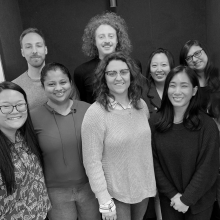In recent years, the sustainability and climate-related reporting landscape has significantly shifted, creating new obligations for organisations both globally and locally.
With the introduction of the International Sustainability Standards Board's IFRS S1 and IFRS S2 (ISSB), and the Australian Accounting Standards Board (AASB) S1 and S2, companies are under increasing pressure to respond to and act upon the reporting mandates. The standards are asking organisations to consider the impact of their climate-related and sustainability risks and opportunities on their financial performance, both now and in the future. They are designed to create consistency, transparency and accountability for climate-related reporting.
Deloitte and RMIT Online have designed this course to empower you to identify risks, unearth opportunities, and devise strategies that tackle financial and climate sustainability challenges head-on. Prepare to thrive amidst a changing landscape with a course that lays the groundwork for understanding and navigating evolving sustainability and climate-related standards.
This course has been developed to align with the four key pillars of the climate and sustainability standards:
- Governance: the governance processes, controls and procedures the entity uses to monitor and manage sustainability-related risks and opportunities.
- Strategy: the approach the entity uses to manage sustainability-related risks and opportunities.
- Risk management: the processes the entity uses to identify, assess, prioritise and monitor sustainability-related risks and opportunities.
- Metrics and targets: the entity’s performance in relation to sustainability-related risks and opportunities, including progress towards any targets the entity has set or is required to meet by law or regulation.
By the end of this course, you’ll be able to:
- Outline the actions an organisation must undertake to meet the requirements of the sustainability and climate-related mandated standards
- Determine activities to identify and evaluate material sustainability and climate-related risks and opportunities for your organisation
- Determine the process and key inputs required to develop a climate transition plan for your organisation, incorporating resilience targets, decarbonisation targets, and strategies to meet them
- Detail how your organisation’s sustainability and climate-related activities can be incorporated into financial performance assessments and associated financial reporting.
In this course, you will develop and present a high-level roadmap to enable you to support your organisation in adopting the mandatory sustainability and climate-related reporting requirements to create impact and value beyond compliance. This will consist of a 4 - 5 minute presentation that includes both a slide deck and a video.
Enquire for your organisation.



















